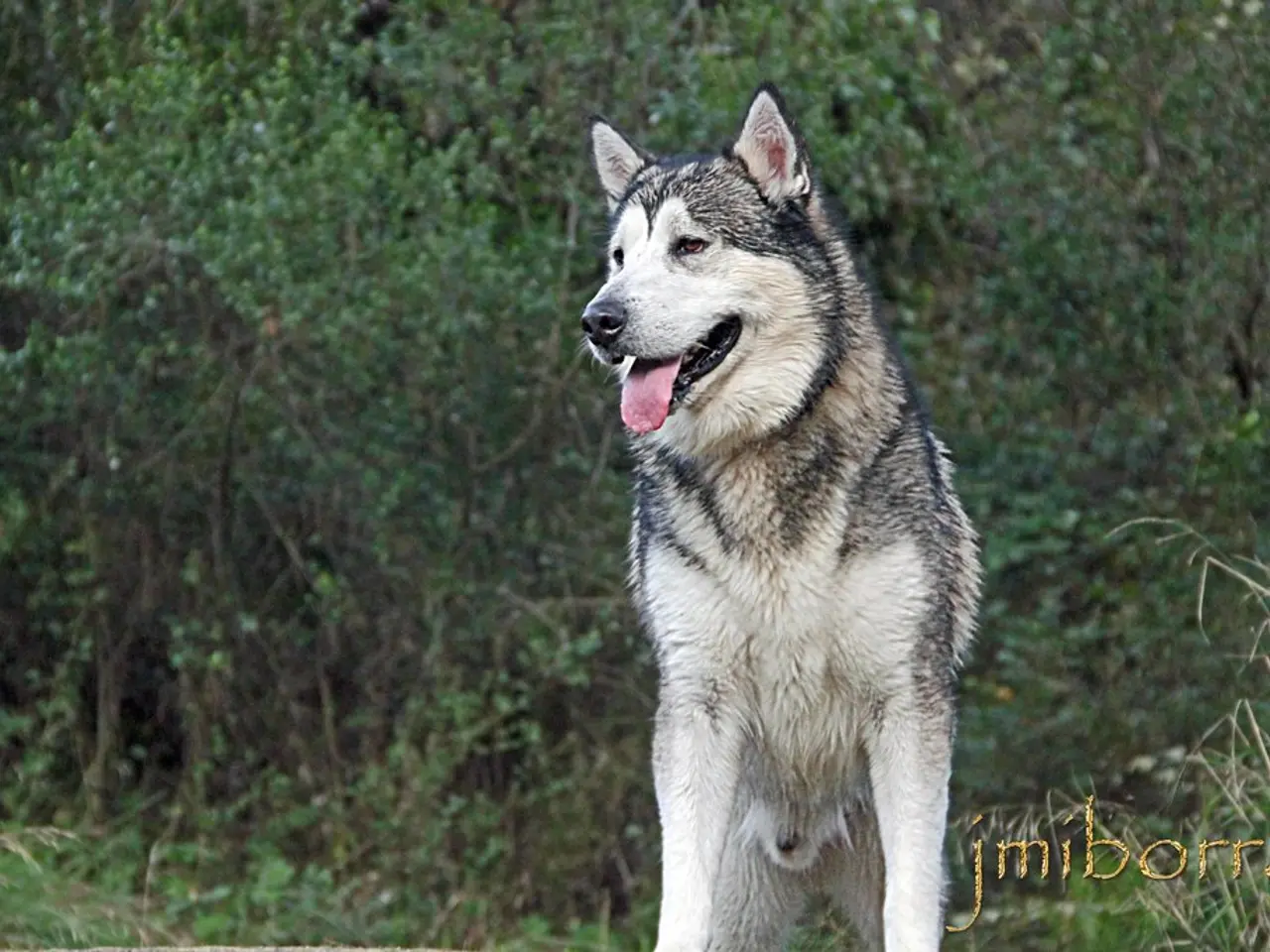"Excited about the arrival of the wolf!"
In recent years, the recovery of wolf populations across Europe, including Germany, has sparked a contentious debate about their role in the ecosystem and their impact on agriculture. This article delves into the ongoing discussion in Thuringia, a state in central Germany, where the presence of wolves has become a topic of societal debate not only in Germany, but also across Europe and the United States.
Wolf populations in Germany have been rebounding, thanks to conservation efforts and legal protection under the European Union’s Habitats Directive. However, these recovering populations often face challenges, particularly in areas with agriculture and livestock. In Thuringia, like other German states, strategies for managing wolf populations would likely include compensation for livestock losses and educational programs to promote coexistence with wolves.
One of the most significant controversies surrounding wolf conservation is the impact on livestock. Public perception and acceptance of wolves can vary significantly, with some communities opposing their presence due to concerns about safety and economic impacts. Reports of attacks on animals by wolves are occurring, but these incidents are mainly with private small animal keepers where the solution for grazing animal protection has not yet reached.
Animal protectors and environmental associations are demanding consequences and a dedicated position to combat environmental crimes following the death of a wolf in Thuringia's Wartburg district in 2023. The wolf's death, however, is not the only issue at hand. The numerical presence and spread of wolves in Germany, particularly in eastern Germany and Thuringia, are increasing. A pair of wolves from the Czech Republic has settled in Neuhaus am Rennweg, Floh-Seligenthal, and a pack with eight wolves resides in Ohrdruf.
Silvester Tamás, a wolf and lynx expert at NABU Thuringia, has been involved in wolf conservation for many years. NABU Thuringia, an animal protection and environmental association, is calling for action following the death of the wolf. Tamás discusses the wolf’s role as a symbol for discussions about resources and the value of nature.
The reintroduction of wolves in Germany is considered a success, based on decades of effort by Europe, politicians, governments, volunteers, scientists, and nature lovers. The solution for grazing animal protection has been worked out, including the Wolf Management Plan and the Wolf-Lynx Funding Directive in Thuringia, providing 100% funding for farm shepherds. Despite this, the debate over the reintroduction of wolves in Germany has been influenced by hunting and landowner interests.
In conclusion, the presence of wolves in Germany, and particularly in Thuringia, is a complex issue that requires careful management. While basic protection is usually enough to deter wolves from attacking grazing animals, avoiding at least 80% of the attacks on grazing animals requires turning the right screws to make the system work effectively. As the debate continues, it is crucial to balance the needs of wolves with human activities like agriculture and urban development, ensuring adequate habitat and prey bases for wolf populations.
- The resurgence of wolf populations in Europe, including Germany, has sparked a heated discussion about their role in the ecosystem and their implications for agriculture.
- Science and environmental-science have played significant roles in the recovery of wolf populations, guided by conservation efforts and legal protection under the European Union’s Habitats Directive.
- Migration of wolves has extended beyond the boundaries of single countries, making that discussion a European issue and even a point of global interest and concern.
- Education-and-self-development and personal-growth can help to foster an understanding of the importance of wolves in the ecosystem and the need for coexistence.
- Mindfulness practices can aid in managing fear and bias towards wolves, promoting a more balanced perspective in communities where they have become a contentious issue.
- War-and-conflicts can be present in the debate over wolf populations, with agricultural interests and those advocating for wildlife conservation holding opposing viewpoints.
- Productivity can be affected when resources are diverted towards managing conflicts over wolf populations, rather than being utilized for economic development.
- Career-development in fields such as policy-and-legislation can involve addressing the challenges associated with wolf conservation and finding effective solutions for managing ecosystems that support both wildlife and human activities.
- Car-accidents and other accidents can be caused by attempts to scare or deter wolves, highlighting the need for safe and humane solutions for managing human-wolf interactions.
- Politics can play a significant role in shaping the policies that govern wolf conservation and management, influencing the balance between wildlife protection and human interests.
- Online-education can be an effective means of disseminating information about wolf conservation and coexistence, reaching audiences beyond traditional educational settings.
- Job-search can involve seeking positions related to wolf conservation and management, as efforts continue to find effective ways to balance human activities with the needs of the ecosystem.
- General-news outlets and media can impact public opinion by reporting on the impact of wolves on livestock, fostering a narrative that influences individuals and communities.
- Crime-and-justice can be a factor when addressing the illegal killing of wolves or other environmental crimes related to wildlife conservation.
- Fires and other natural disasters can impact wolf populations and their habitat, highlighting the need for effective services and support for managing ecosystems to minimize these risks.
- Learning and goal-setting can help individuals and communities to better understand the role of wolves in the ecosystem and find opportunities for liifelong-learning and skills-training to support effective conservation efforts.
- Sports, such as football (soccer) in the Champions League, NFL, European leagues, Premier League, American football, Laliga, and NCAA football, can provide a temporary distraction from the ongoing debate over wolf conservation, offering opportunities for personal relaxation and entertainment.




